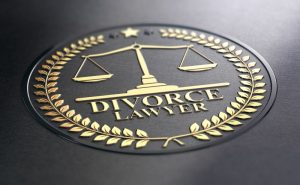
What kind of lawyer do I need?
 “What type of lawyer are you?” That’s a common question lawyers get from people they meet.
“What type of lawyer are you?” That’s a common question lawyers get from people they meet.
Attorneys in smaller jurisdictions may answer, “I do a little bit of everything,” or “I’m a general practitioner.”
In big-city Charlotte and Mecklenburg County, responses to that same question may include “criminal defense lawyer” or “family law attorney” or “corporate counsel.”
Lawyers in Charlotte tend to limit and define their professional practices by types of legal matters.
Frankly, I think that’s a shame. Small town North Carolina gets in right. That’s especially true if the legal issue involves divorce, children, and other marital problems – Bill Powers, Divorce Attorney
How is it that the former President of the North Carolina Advocates for Justice, and well-known “Charlotte attorney,” has come to that conclusion?
What do “divorce lawyers” do?
Here’s a little known fact, even among legal professionals.
In providing legal services, lawyers who handle matters involving custody, divorce, ED (equitable distribution), and marital unfaithfulness, while they may refer to themselves as “divorce lawyers,” actually do a lot of different things.
They must be prepared to handle an incredibly diverse range of different legal issues.
I have been practicing law since 1992. I’ve litigated many different types of cases. I’ve handled murder charges, personal injury claims, and real estate closings. I’ve drafted wills and powers of attorney. Nothing in my humble opinion is more potentially complicated than a divorce with children – Bill Powers
Our law firm prefers to focus on the individual legal need and the client, rather than practice-group designations.
We refer to ourselves as courtroom lawyers and litigators.
And to do that, Bill Powers has traveled extensively throughout North Carolina to help people with a wide range of different legal needs.
What is “family law” anyway?
Lawyers in Charlotte who refer to themselves as “family law attorneys” don’t take every case or client who walks through the door.
It’s not that they are bad people or unwilling to help.
The vast, vast majority of attorneys I know are compassionate people, dedicated to helping others. Indeed, people go into law because of their passion to make a difference – Bill Powers
As such, if a lawyer declines to accept your case for representation, they may be inexperienced or simply don’t enjoy certain aspects of handling those particular types of legal issues.
That’s OK.
In fact, it’s more than OK. It’s downright professional.
Straight Tips From a Charlotte Divorce Lawyer
Lawyers must be competent to handle a legal matter.
That’s one of the first rules of being a lawyer.
If a lawyer tells you they want to refer you to another attorney for all or part of a case, don’t take offense.
It’s likely not you; chances are they are actually a really good attorney.
It’s both ethical and professional to look out for your best interests rather than take a case that doesn’t fit a particular skill set.
The best lawyers I know aren’t afraid to admit someone else may be a better fit or more experienced to handle something – Bill Powers
The value of practical experience and institutional memory
We are resolute in our belief that no two cases are exactly the same.
While there may be certain similarities in case files, your circumstances, and individual needs, are truly unique.
Divorce often involves careful consideration of several different types of law or areas of practice.
It can be a difficult thing indeed to find an attorney with any level of experience willing to take on a heart balm case involving allegations of “Criminal Conversation” and “Alienation of Affection.”
If you own a home with someone, transferring title to real estate may be necessary as part of getting divorced.
If you have a retirement plan (401K, IRA – Individual Retirement Account, pension plan, savings incentive match plan, etc.), the execution of a QDRO – Qualified Domestic Relations Order is likely appropriate.
If you own a business or a fractional share of a company, it helps to know when to bring in a financial planner or forensic accountant for professional advice.
Some lawyers love being in the courtroom, litigating.
Others only work with collaborative law matters, never seeing the inside of a courtroom or arguing a case to completion.
Prior experiences, both good and bad, very much direct my legal advice and what I think is best for a client. Given the number of different types cases I’ve handled across North Carolina, we bring a fair amount of institutional wisdom and common-sense to the process.
Call Attorney Bill Powers now to schedule your consultation.
Legal consultations for divorce, child support, equitable distribution, visitation, etc., (“family law legal issues”) involve a consultation fee and hourly rates. That is different from other types of cases our law firm handles.
For example, we do not charge consultation fees for DWI charges or other criminal charges in North Carolina. Similarly, we do not charge hourly rates or establish a consultation fee for car accident cases or other “personal injury” matters.
NC Divorce Laws – Topics of Interest
- The First Step in Divorce
- No-Fault Divorce in North Carolina
- What is Collaborative Divorce?
- When should I hire a Divorce Lawyer?